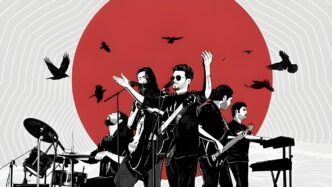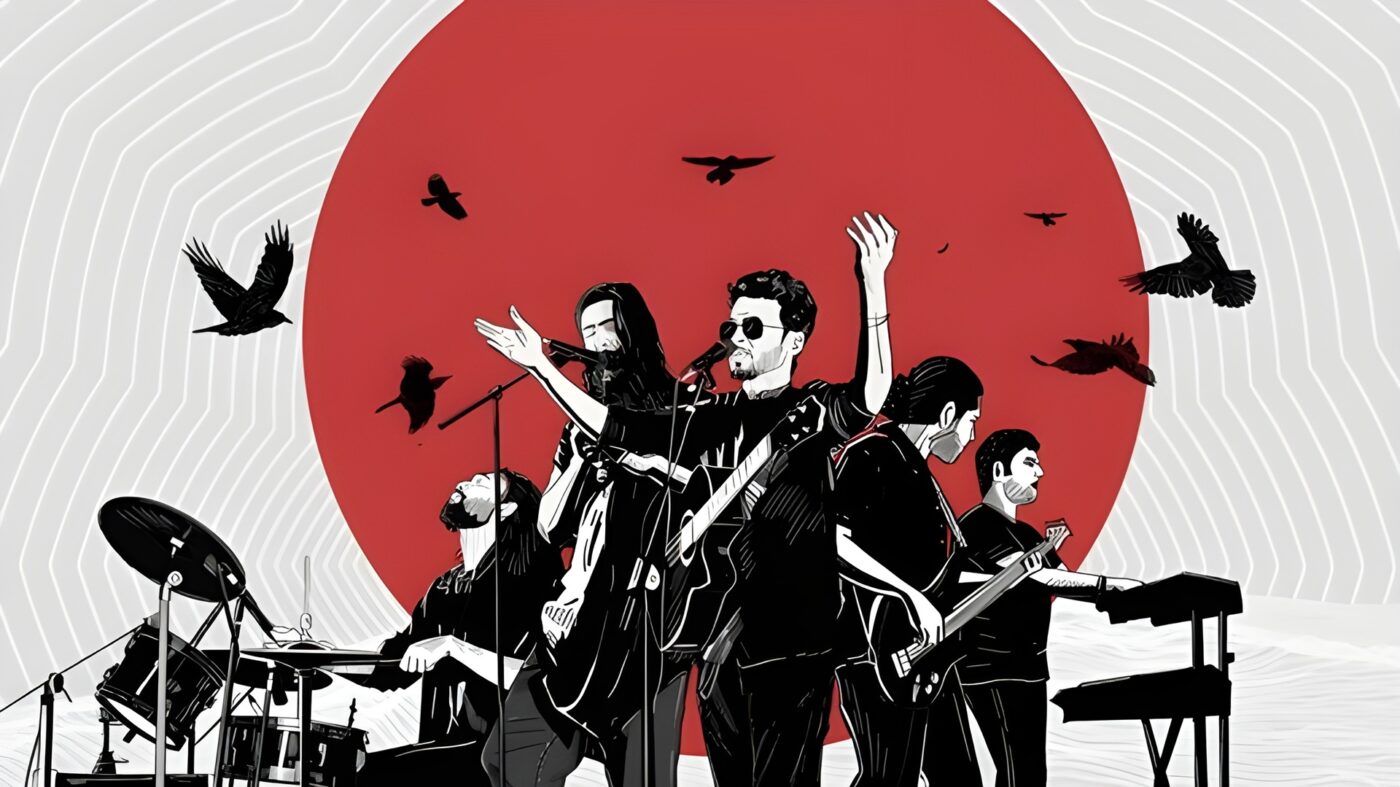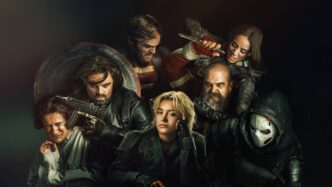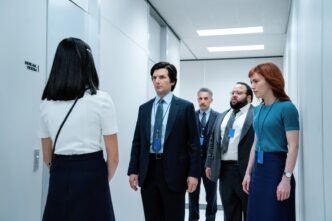Editor’s Note: Kaktaal just announced they are disbanding after two years as a band, so we wanted to look back at their fan-favorite monthly event from last year’s December, OnuSession.
There is a concept called onism—the frustration stemming from the realization that you will only ever live the life you are living, with its inherent limitations. Nothing more, nothing less. It is the plaintive acknowledgment that you can never experience everything you want to: the feeling of being imprisoned by your own existence. In one way or another, everyone suffers from this inherent restlessness: never content, always yearning for more. But in our frantic race to seize every moment, we often overlook the quiet beauty that surrounds us. In our haste to achieve and experience the most we can, we seldom pause to observe or savor the present.
Sometimes, to escape the overwhelming sense of confinement in your own life, you must, paradoxically, experience a form of imprisonment.
Kaktaal is the story of how music can emerge from the unlikeliest of places. Asif Iqbal Antu founded this band during a seven‐year-long sentence—a period marked by severe restrictions and unexpected revelations. Having never before picked up a pen for anything beyond sketching models for his architecture class, Antu filled over thirty journals with lyrics that now resonate with hundreds of thousands of individuals. From learning to craft lyrics to eventually setting them to music—and from obtaining a guitar to teaching himself how to play it while incarcerated—his journey echoes that of a modern-day Andy Dufresne. His transformation, however, did not culminate in a dramatic prison break or a reinvention of identity leading to a one-way trip to Zihuatanejo. Instead, his story marked the beginning of a band that would rise to become one of the biggest in Bangladesh, amassing millions of followers who find solace and truth in every note and lyric.
The young man, once destined to become a faculty member in architecture at one of Dhaka’s largest universities, instead found himself confined behind bars—where even a simple fried egg was considered a luxury. And he endured this life for seven long years.
His story is nothing if not inspiring. It is a narrative of songs born within prison walls—songs that emerged from solitude and adversity, as well as those that never saw the light of day because a jailer, fearful of being incriminated, tore the pages upon reading them. This necessity to employ metaphorical lyrics was born out of a need to protect himself from accusations of snitching. Yet, despite every hardship he faced, Antu emerged more resilient and creative each time.
My introduction to Kaktaal was, by far, the least imaginative of any musical discovery. I first encountered the band when Spotify casually recommended the song GolokDhadha with a strange extension of Version 1. I liked the tune, but it didn’t leave a lasting impression—until one day, while traveling from the outskirts of town into the hills with a bleeding, freshly wounded heart, Kaktaal crept up on me in a way that was impossible to ignore.
There is an old saying: The only way to expand your heart is by breaking it. I had heard these words in an interview with Andrew Garfield, and they have resonated with me ever since. I had never experienced pain so immense until I listened to the following lines:
“আবার দেখা হলে
বোলো, ‘কেমন আছো তুমি?’
শুনেছি বদলে গেছ
জানি বদলায়নি বুকের খাঁচায়
উদাস নীলাভ পাখি”
At that moment, the gaping hole in my chest seemed to widen, yet I could not stop listening. It was as if Antu were whispering, “Yes, you’ll never feel pain this intense—so feel it.” And indeed, I did.
Why do we often turn to sad songs when we are already in the depths of sorrow? Is it that we love the sensation of pain, or is it that we find comfort in hearing our emotions transformed into beautifully crafted poetry and music—articulations we might never be able to voice ourselves?
I suspect that living for seven years in an environment where the volatility of human lives is on full display forces you to recognize the preciousness of life. It teaches you how vast each person’s experience is and how little we truly understand about one another. This realization is at the heart of why Iqbal refuses to see his listeners merely as fans. Instead, he views them as multi-faceted individuals with rich, intricate lives. He constantly seeks out unique ways to connect with them, similar to the community spirit found in fan conventions.
One such innovative concept is OnuSession. The name itself is a clever blend—“Anu” combining Antu and Nujhat (his wife)—and it perfectly encapsulates the intimate nature of these gatherings. Held at their home on a monthly or bi-monthly basis, OnuSession invites roughly twenty people to come together for an evening of conversation, music, and shared experiences. Attendees sit down with Iqbal as he recounts his life stories and, in turn, asks about theirs. The event is punctuated with musical interludes, tea and cigarette breaks, and plenty of conversation. By the end of the six-hour session, you not only feel a newfound closeness to the band but also gain a heightened sense of admiration and curiosity about the songwriting process and the man behind the music.
On the ground floor of their house, a cozy seating area awaits. Here, Iqbal, armed with his laptop, a set of speakers, and his trusted guitar, performs heartfelt songs. The red wall behind him is adorned with pages from his prison journals—each piece of art more fascinating and breathtaking than the last—reminding you of the transformative power of art born in adversity. Adjacent to this space is the studio, the creative nucleus where ideas turn into songs.
And if you’re lucky, you might even catch a glimpse of Shurshuri, the adorable cat who effortlessly wins everyone’s attention and hearts in mere seconds.
During these sessions, Iqbal shares not only the stories behind his songs but also the personal experiences of those seven harrowing years. He divulges anecdotes that you would never encounter in any other setting, forging a rare, unguarded connection with his audience. Initially, many attendees—myself included—were shy and reserved. Yet by the end of the evening, even the most introverted souls found themselves asking an abundance of questions, their curiosity breaking through their inhibitions. Opportunities to bond so closely with a favorite artist are few and far between. Kaktaal, however, remains steadfast in its commitment to its roots, nurturing a community spirit through intimate sessions like these. They have even organized a three-day trip to Sreemangal for thirty of their listeners, an adventure that undoubtedly forged unforgettable memories for everyone involved.
When I discuss Kaktaal with fellow music enthusiasts, a recurring comment is how accessible their songs are on the guitar. I suspect that the ease with which one can learn their tunes—perhaps due to learning in short, ten-minute bursts by memory—is a testament to the simplicity that defines their music. Yet, the true magic of Kaktaal undeniably lies in its lyrics. Iqbal treasures the personal stories his listeners attach to his music, which is why he reads every email sent his way. He listens intently to how Ghorchara resonates with those leaving their childhood homes for city life, or how Kichu Nei poignantly captures the silent heartbreaks experienced by women adjusting to new familial environments. One of the first questions he asks each guest is about their introduction to Kaktaal—a testament to his genuine love for his art and the community that supports it. In an era where artists often dismiss their own creations, this openness is both refreshing and inspiring.
Kaktaal is more than just a band—it is a living, breathing narrative that spans a myriad of themes: from the raw emotions of jail journals and the fire of rebellion to the wistful nostalgia for a home that is no longer yours. Every song is imbued with a story, and the sheer volume of their work is, in itself, overwhelming.
By the time Iqbal was released from prison, four albums had already been issued. Even now, the band’s YouTube channel continues to release new songs with minimal fanfare—no elaborate countdowns or overblown marketing strategies, just the music emerging naturally as it always has. Asif has mentioned that he rarely spends more than a day or two on any given song. The creative process is almost instantaneous: a tune forms in his mind, he hums it out, then later sits down with his guitar, adds the necessary production touches, and posts the finished product on YouTube. There is an admirable spontaneity and authenticity in this approach, a testament to the band’s commitment to genuine expression over manufactured hype.
With captivating tracks like Maya, Chorki, and Sodium, Kaktaal is rapidly winning over the hearts of listeners everywhere. Despite their conscious decision to remain grounded and somewhat underground, the quality of their music and the deep emotional connections they foster ensure that their audience continues to grow. The OnuSession, in particular, remains an experience I will not soon forget—a rare opportunity to engage with an artist on a deeply personal level.
In reflecting on this journey, I find myself both humbled and inspired. I am by no means a gatekeeper when it comes to music, but I wholeheartedly wish Kaktaal all the success they rightfully deserve. Even if they eventually become the largest band in the country, I sincerely hope that they remain true to their roots—a band for the people, by the people. And something tells me that they will.
What makes Kaktaal so exceptional is not just the music they create, but the way in which they foster community. Their willingness to share their vulnerabilities and personal stories transforms the act of listening into an immersive experience. Every lyric, every note is a piece of a larger tapestry woven from the threads of struggle, resilience, and hope. It is this very tapestry that connects the band with its audience, making every performance an intimate conversation rather than a mere musical event.
The story of Kaktaal is also a reminder that creativity can thrive even in the most unlikely circumstances. In a place where hope might seem scarce, music became a lifeline—a means of transcending the physical confines of prison walls and reaching out to the world beyond. This spirit of transformation and self-discovery is at the heart of every OnuSession, where fans are invited not only to listen but also to share in the collective narrative of overcoming adversity. Learn more about the transformative power of art.
Moreover, the simplicity of Kaktaal’s music is what endears it to so many. In a musical landscape often dominated by elaborate production and complex arrangements, their stripped-down, honest approach feels like a breath of fresh air. It reminds us that sometimes, beauty lies in simplicity.
Kaktaal’s OnuSession is much more than a casual meetup; it is an immersive journey into the heart and soul of a band that refuses to let life’s limitations define them.For anyone who has ever felt the sting of onism, for anyone who has ever yearned for deeper connections in a seemingly indifferent world, Kaktaal offers not just music, but a shared human experience—one that bridges the gap between artist and listener, turning fleeting moments of pain into lasting bonds of understanding and hope.
And so, as I reflect on that unforgettable OnuSession, I carry with me the lingering warmth of shared stories, the simple yet profound beauty of heartfelt music, and the enduring reminder that even in our darkest moments, art has the power to set us free.








Leave a Reply